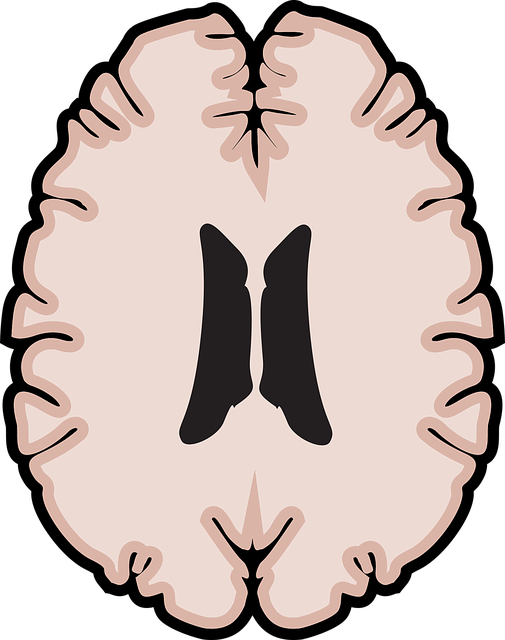Healthcare provider burnout, a significant issue within the medical field, particularly affects patient care and system quality. Caused by factors like heavy workloads and lack of control, it leads to exhaustion, cynicism, and detachment. To combat this, Littleton Major Life Transitions Therapy suggests a multi-faceted approach including empathy-building techniques, mental wellness coaching, public awareness campaigns, and regular risk assessments. Promoting self-care through journaling, mindfulness meditation, compassion cultivation, and quiet reflection during breaks further enhances resilience. Recognition programs and professional development opportunities also play vital roles in preventing burnout and fostering job satisfaction. Building supportive organizational cultures with peer support systems and stress management initiatives strengthens team resilience, mirroring the positive impacts of Littleton Major Life Transitions Therapy services.
Healthcare provider burnout is a growing concern, impacting not just individuals but the entire healthcare system. This article explores comprehensive strategies to prevent burnout among healthcare professionals. We delve into the root causes and significant effects on mental well-being, emphasizing the critical role of therapy and support systems. Additionally, we discuss work-life balance tactics, job satisfaction boosters, and team resilience building through organizational culture and peer support. By implementing these strategies, healthcare providers can navigate challenging shifts, ensuring long-term sustainability and improved patient care, especially during major life transitions.
- Understanding Burnout Among Healthcare Providers: Causes and Impact
- The Role of Mental Health Support and Therapy in Prevention
- Work-Life Balance Strategies for Sustainable Practice
- Enhancing Job Satisfaction: Recognition and Professional Development
- Building Resilient Teams: Organizational Culture and Peer Support
Understanding Burnout Among Healthcare Providers: Causes and Impact

Burnout among healthcare providers is a growing concern, impacting not just individual well-being but also patient care and the overall quality of the healthcare system. It’s essential to understand that burnout isn’t simply fatigue; it’s a state resulting from prolonged exposure to intense work stress without adequate coping resources. Healthcare professionals often face demanding work environments characterized by long hours, high-pressure decisions, and emotionally challenging situations. These factors contribute to feelings of exhaustion, cynicism, and detachment from one’s job—the hallmarks of burnout.
The causes are multifaceted, including heavy workload, lack of control over working conditions, inadequate support systems, and a disconnect between personal values and job requirements. In the context of Littleton Major Life Transitions Therapy, understanding these underlying factors is crucial. Burnout can significantly impact healthcare providers’ ability to connect with patients, deliver compassionate care, and maintain professional resilience. This emphasizes the need for comprehensive strategies such as empathy-building techniques, mental wellness coaching programs, and public awareness campaigns aimed at fostering a healthier work environment and promoting provider well-being.
The Role of Mental Health Support and Therapy in Prevention

Healthcare provider burnout is a significant concern, and addressing it requires a multifaceted approach. One crucial aspect often overlooked is mental health support. Providing therapists or counseling services within healthcare settings can offer professionals a safe space to process their emotions, manage stress, and cope with challenging experiences. This is especially vital during major life transitions, where therapists in Littleton can assist staff in navigating changes, whether it’s adapting to new technologies, shifting roles, or dealing with high-stress patient cases.
The design of mental health education programs should focus on emotional healing processes to build resilience. These programs can equip healthcare providers with coping mechanisms and stress management techniques, fostering a healthier work environment. Additionally, regular risk assessments for mental health professionals are essential to identify early warning signs of burnout and provide timely interventions. Such measures ensure that the well-being of caregivers is prioritized, ultimately enhancing patient care and satisfaction.
Work-Life Balance Strategies for Sustainable Practice

Maintaining a healthy work-life balance is essential for healthcare providers to prevent burnout and promote sustainable practice. In today’s demanding medical landscape, where long hours and high-stress situations are common, finding moments for self-care becomes crucial. The integration of strategies that support emotional regulation and mental wellness is vital. Healthcare professionals can benefit from practices like journaling as a mental wellness journal exercise guidance, allowing them to reflect on their experiences and emotions. This not only provides an outlet for processing stressful events but also fosters personal growth.
Additionally, incorporating compassion cultivation practices into daily routines can make a significant difference. By nurturing empathy and kindness towards oneself and others, healthcare providers can better manage challenging situations, enhance patient care, and sustain their commitment to the profession. Strategies such as mindfulness meditation or even simple moments of quiet reflection during breaks can help navigate major life transitions, ensuring professionals feel supported in their journey towards a healthier, more fulfilling practice.
Enhancing Job Satisfaction: Recognition and Professional Development

Enhancing job satisfaction among healthcare providers is a vital strategy to prevent burnout and promote long-term resilience. Recognition plays a pivotal role in this process. Simple gestures such as public acknowledgment of their contributions, peer-to-peer appreciation, or even personalized thank-you notes can significantly boost morale. This recognition should not only acknowledge their efforts during challenging times but also celebrate small wins and everyday achievements, fostering a sense of belonging and purpose.
Professional development opportunities are another powerful tool to enhance job satisfaction. Providing healthcare providers with avenues for skill refinement, knowledge expansion, and career growth through workshops, conferences, or mentorship programs can spark renewed interest in their work. Customizing these development initiatives to align with individual interests and career goals is key, ensuring they remain engaged and motivated. Incorporating elements of cultural competency training within these professional development programs can further enrich the healthcare environment, fostering a more inclusive and supportive atmosphere for both providers and patients, such as those seeking therapy through Littleton Major Life Transitions services.
Building Resilient Teams: Organizational Culture and Peer Support

Building resilient teams is a cornerstone in preventing healthcare provider burnout. Organizational culture plays a pivotal role here, fostering an environment that prioritizes support and collaboration. When healthcare workers feel valued and connected to their peers, they are better equipped to navigate challenging situations. Peer support systems, where colleagues can debrief, share experiences, and offer encouragement, have proven to be effective in stress management workshops organized within medical institutions. Encouraging open communication, empathy, and emotional intelligence strengthens the team’s collective resilience.
The integration of coping skills development programs and stress reduction methods into the organizational culture further enhances this protection. Such initiatives enable healthcare providers to develop healthy coping strategies, manage stress effectively, and maintain a sense of balance in their lives. By investing in these aspects, organizations like Littleton Major Life Transitions Therapy can create a supportive network that not only prevents burnout but also improves overall job satisfaction and employee retention.
Healthcare provider burnout is a complex issue, but with a multifaceted approach, it can be effectively addressed. By recognizing the signs and causes of burnout early on, and implementing strategies such as mental health support, work-life balance initiatives, job satisfaction boosters, and resilient team-building, healthcare organizations can foster an environment that prevents burnout and promotes long-term well-being. Incorporating evidence-based practices, like those offered by Littleton Major Life Transitions Therapy, can provide valuable tools for managing stress and enhancing professional resilience. Ultimately, prioritizing burnout prevention not only benefits individual providers but also ensures high-quality patient care for years to come.














